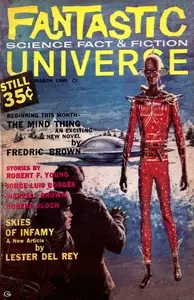"Sandra Belloni — Volume 3" by George Meredith is a novel written in the late 19th century. It explores complex themes of love, ambition, and societal expectation through the lives of its characters, primarily focusing on Wilfrid Pole and Emilia Belloni. The narrative unfolds in a domestic setting where personal struggles and emotional entanglements take center stage, highlighting the challenges faced by the young and impressionable in their pursuit of happiness and identity. The opening of the book reintroduces readers to Wilfrid, who is caught in an ambiguous relationship with Lady Charlotte Chillingworth while grappling with his feelings for Emilia Belloni. In a reflective state, he contemplates the nature of his sentiments and societal pressures that surround him, particularly regarding love and devotion. Emilia’s longing for connection and acknowledgment from Wilfrid is palpable, as she navigates her aspirations for a future in music. Their emotional interplay is set against a backdrop of other characters, including Mr. Pericles, who is intent on guiding Emilia's musical career, and Lady Charlotte, who adds tension to Wilfrid's already complicated affections. This portion of the novel effectively establishes the conflict between personal desires and societal obligations, laying the foundation for the unfolding drama in their intertwined lives. (This is an automatically generated summary.)

Sandra Belloni — Volume 3
By George Meredith
"Sandra Belloni — Volume 3" by George Meredith is a novel written in the late 19th century. It explores complex themes of love, ambition, and societal...
George Meredith was an English novelist and poet of the Victorian era. At first, his focus was poetry, influenced by John Keats among others, but Meredith gradually established a reputation as a novelist. The Ordeal of Richard Feverel (1859) briefly scandalised Victorian literary circles. Of his later novels, the most enduring is The Egoist (1879), though in his lifetime his greatest success was Diana of the Crossways (1885). His novels were innovative in their attention to characters' psychology, and also portrayed social change. His style, in both poetry and prose, was noted for its syntactic complexity; Oscar Wilde likened it to "chaos illumined by brilliant flashes of lightning". Meredith was an encourager of other novelists, as well as an influence on them; among those to benefit were Robert Louis Stevenson and George Gissing. Meredith was nominated for the Nobel Prize in Literature seven times.












